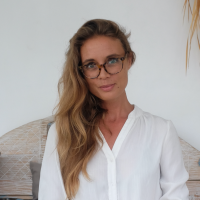View this post on Instagram
Many struggle to find “peace of mind.”
This includes those who decide to change it all and take action—and those who sell all their possessions and move into a monastery where they restrict themselves to a relatively rigid but effective routine (no distractions, practicing yoga daily, sitting down for meditation every morning, chanting, mindfully eating a Sattvic diet).
Yes, it will most definitely do the trick. It will help.
However, if, at some point, they decide to climb down from the mountain and go back to their lives and interact with family, friends, and work, they still might lack inner peace or be able to hold onto that peaceful state of mind.
This is perfectly natural since we are not made to live in the society we have today. But we also need to experience to learn. All the beautiful things we have learned and the insights we have had when we work on ourselves need to be taken into situations for practice.
For example, if we read all the “learn German easy” books there are in a bookstore, we still need to practice German for some time for the brain to wire in this language so that we don’t have to translate every sentence in our head before speaking.
The person that we are has practiced its “identity” for a long time. So to change that, we need to be patient and committed to the process.
We experience our day through emotions and thoughts. They are the tools we use to make decisions, move forward in general, and interact. However, we may not have been taught anything about them. We learned plenty of things from our family, and we were “trained” in school to meet the world outside. But when there’s an obsessive thought or a strong feeling, it has always been somewhat obscure.
So if we think about it, what we let influence how we live is something we have no control over. Naturally, many of us feel different kinds of fear-like emotions regularly (anxiety, anger, frustration, sadness). Since we may not know what to do with these emotions, we are controlled by the feeling. Perhaps it’s because we don’t know how to change how we feel or why we feel how we do.
To get out of an uncomfortable state, we do what we have always been taught to do—distract ourselves.
But whatever we resist persists. If we distract ourselves every time there is discomfort or avoid what makes us scared, it will only grow bigger and bigger. We will take on strategies to go around the problem, but eventually, we end up feeling numb.
This numbness makes us feel small.
And it is true: we have reduced ourselves to a limited experience of what life could be and are slaves to some kind of authority that tells us what to do, what to like, when to do things, and what is right or wrong.
The idea that we are one with the universe, that our potential is infinite, and that the only constant is change, will seem like fluffy rainbows and unicorn hippie talk.
This is what the yogic philosophy talks about when it promotes the removal of ignorance to see clearly, and how ignorance is our source of suffering. That knowledge is the way to happiness. And by knowledge, this beautiful philosophy means understanding that we are one, unified—not separate—from the source of it all.
Now, zooming in to our small modern lives, how do we make this approachable and useful in our daily doings?
Understand that this veil of ignorance that keeps us suffering is the same as the strategies we develop, which become an image of ourselves. This image, no matter how beautiful and useful it might be, reduces us to that smallness we feel limited by.
The day I decided to seek the bigger picture, to clean the window of ignorance, to allow for what is, was the day I said two things:
>> life is too short not to try to access this now. And,
>> life is quite long too, so not doing it means to live unhappy for quite some time.
~











Read 1 comment and reply